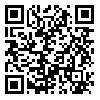Volume 1, Issue 2 (6-2017)
EBHPME 2017, 1(2): 103-111 |
Back to browse issues page
Download citation:
BibTeX | RIS | EndNote | Medlars | ProCite | Reference Manager | RefWorks
Send citation to:



BibTeX | RIS | EndNote | Medlars | ProCite | Reference Manager | RefWorks
Send citation to:
Kalhor R, Azmal M, Khosravizadeh O, moosavi S, Asgari M S, Gharaghieh F. Nurses’ Perception of Evidence-Based Knowledge, Attitude and Practice: A Quantitative Study in Teaching Hospitals. EBHPME 2017; 1 (2) :103-111
URL: http://jebhpme.ssu.ac.ir/article-1-69-en.html
URL: http://jebhpme.ssu.ac.ir/article-1-69-en.html
Rohollah Kalhor 
 , Mohammad Azmal
, Mohammad Azmal 
 , Omid Khosravizadeh
, Omid Khosravizadeh 
 , Saeideh Moosavi
, Saeideh Moosavi 
 , Maryam Sadat Asgari
, Maryam Sadat Asgari 
 , Fatemeh Gharaghieh *
, Fatemeh Gharaghieh * 


 , Mohammad Azmal
, Mohammad Azmal 
 , Omid Khosravizadeh
, Omid Khosravizadeh 
 , Saeideh Moosavi
, Saeideh Moosavi 
 , Maryam Sadat Asgari
, Maryam Sadat Asgari 
 , Fatemeh Gharaghieh *
, Fatemeh Gharaghieh * 

Health Services Management Department , School of Health, Qazvin University of Medical Sciences, Qazvin, Iran
Abstract: (5885 Views)
Background: Providing healthcare services of the highest quality and quantity, based on the results of scientific research, is one of the main tasks of nurses. The aim of this study is to evaluate nurses’ perception of evidence-based knowledge, attitude and practice in selected hospitals of Iran.
Methods: This study was a descriptive cross-sectional analysis that was conducted to investigate nurses’ perception of evidence-based practice (EBP). Two hundred-and-sixty nurses were selected randomly from six hospitals in Qazvin city in Iran to participate in the study. An evidence-based practice questionnaire was used to assess the dimensions of EBP. Descriptive and inferential statistics using frequency tables, t-student statistics, Pearson correlation coefficient and ANOVA were used for data analysis.
Results: According to this study, nurses’ perception of EBP was generally above average (3.91 out of 7) and average of Practice, attitude and knowledge/skills were 4.14, 3.78 and 3.74 respectively. There was no statistically significant relationship among EBP dimensions and gender, age and job tenure (P-value > 0.05). There was a statistically significant relation between attitude of nurses and type of employment (P-value < 0.05).
Conclusion: In this study, the mean of evidence-based practice among nurses was at a level higher than the average. The attitude of the nurses who were studied was moderate, but thanks to the low level of their knowledge about EBP, training programs based on needs assessments resulting from the findings of this study were suggested that could improve nurses’ knowledge of EBP.
Methods: This study was a descriptive cross-sectional analysis that was conducted to investigate nurses’ perception of evidence-based practice (EBP). Two hundred-and-sixty nurses were selected randomly from six hospitals in Qazvin city in Iran to participate in the study. An evidence-based practice questionnaire was used to assess the dimensions of EBP. Descriptive and inferential statistics using frequency tables, t-student statistics, Pearson correlation coefficient and ANOVA were used for data analysis.
Results: According to this study, nurses’ perception of EBP was generally above average (3.91 out of 7) and average of Practice, attitude and knowledge/skills were 4.14, 3.78 and 3.74 respectively. There was no statistically significant relationship among EBP dimensions and gender, age and job tenure (P-value > 0.05). There was a statistically significant relation between attitude of nurses and type of employment (P-value < 0.05).
Conclusion: In this study, the mean of evidence-based practice among nurses was at a level higher than the average. The attitude of the nurses who were studied was moderate, but thanks to the low level of their knowledge about EBP, training programs based on needs assessments resulting from the findings of this study were suggested that could improve nurses’ knowledge of EBP.
Keywords: Evidence-Based Practice, Nurses’ Knowledge and Skills, Nurses’ Attitudes, Teaching Hospital
Type of Study: Original article |
Subject:
Special
Received: 2017/02/23 | Accepted: 2017/06/24 | Published: 2018/05/16
Received: 2017/02/23 | Accepted: 2017/06/24 | Published: 2018/05/16
| Rights and permissions | |
 |
This work is licensed under a Creative Commons Attribution-NonCommercial 4.0 International License. |



